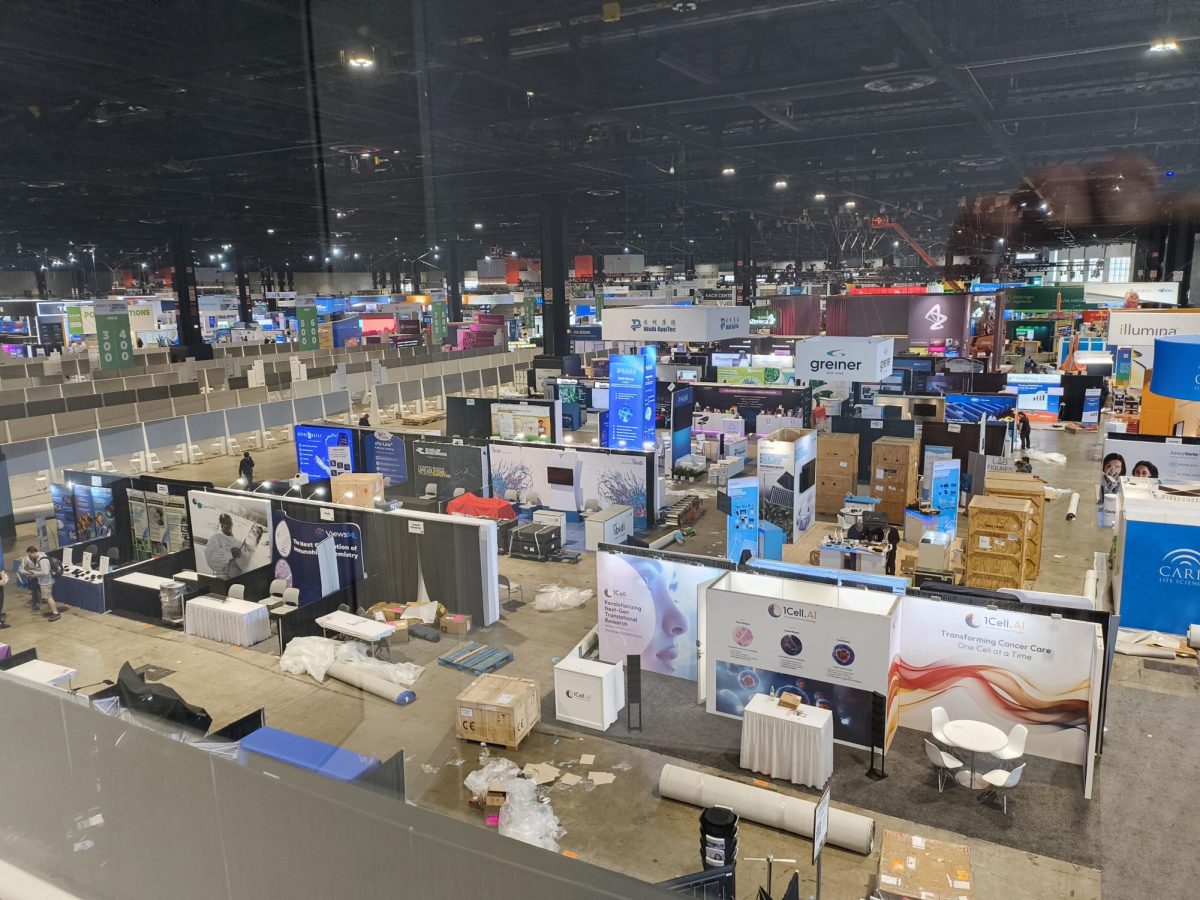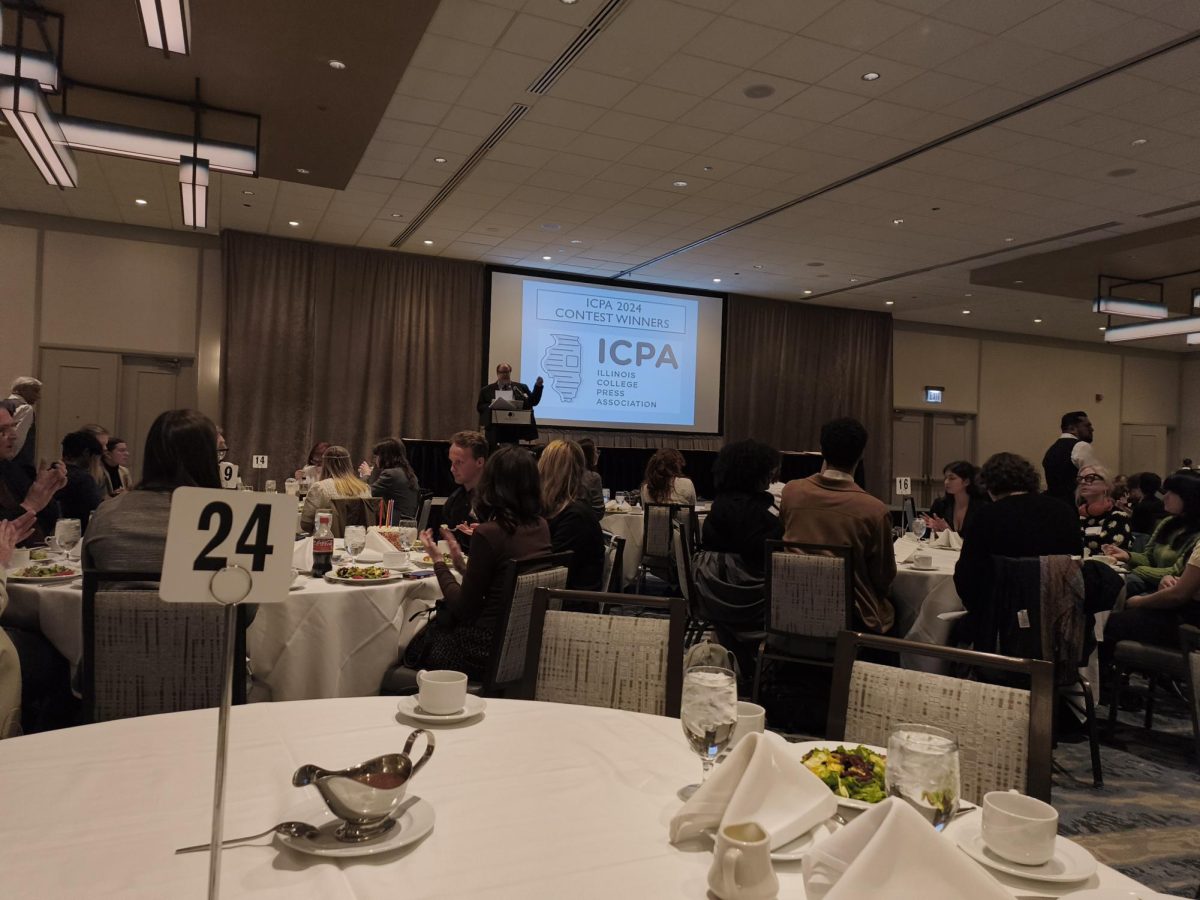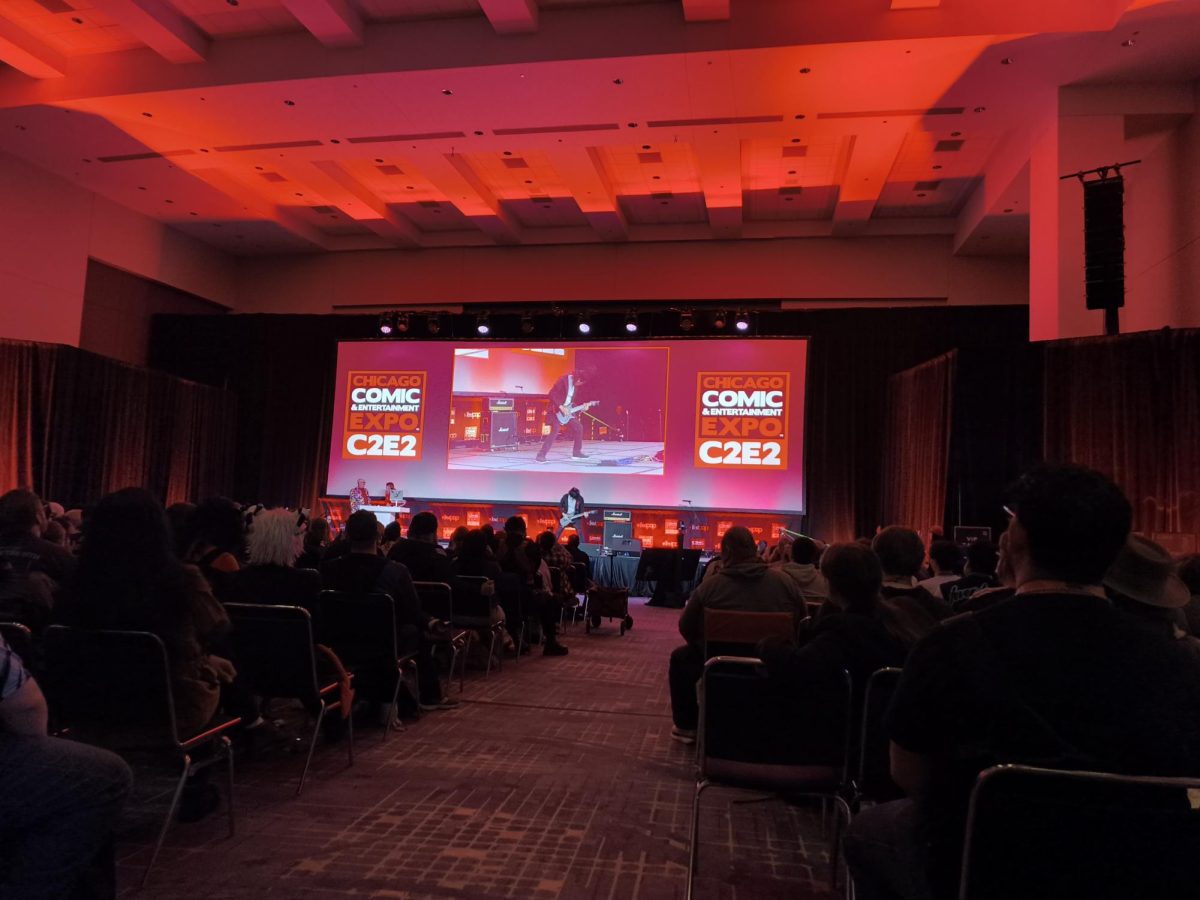Since 2017, the Center for Health at NEIU in collaboration with ChicagoCHEC has hosted the annual NEIU Women in Science (WIS) conference that celebrates a unique theme with each edition. This year, NEIU dedicated its 8th Annual WIS Conference to the field of Computer Science and combined it with NEIU’S Mathematical and Statistical Modeling of Complex Systems (MSMCS) Workshop to offer a Women in Science week.
The third day was fully dedicated to the Women in Science conference. Many ambitious women from computer science shared their journey and motivated many students at Alumni Hall. Shebuti Rayana, an assistant professor at SUNY Old Westbury; Morgan Chesnicka, Senior Partner Development Manager at Microsoft; Aileen Hirsch, Industry X Manager at Accenture; Marilenis Olivera Lee, Lead Consultant at Google via HCLTech; Jacqueline Landi and Carolina Carrillo, mentors from Technolochicas; and Graciela Perera, NEIU’s associate professor and associate chair in computer science, were invited as speakers to talk about their inspiring journeys.
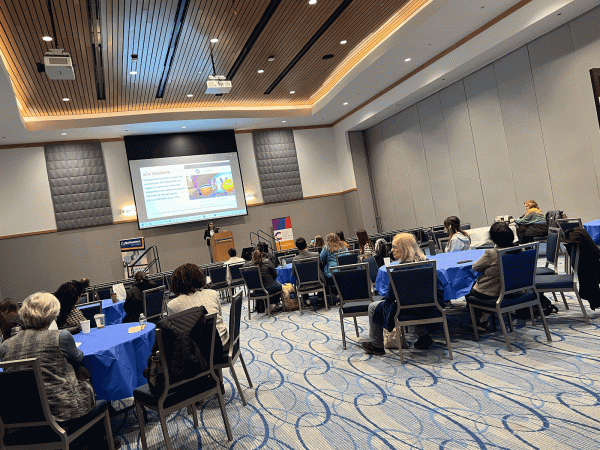
Lee shared her uplifting story from Venezuela to California, highlighting the challenges she faced as an immigrant and first-generation student. Despite the hardships in securing a job in a foreign country, her passion and determination drove her through. She achieved internships and employment opportunities with top organizations such as Adobe, LeapFrog and Stanford University through perseverance, hard work and networking. Lee emphasized the value of volunteering in building relationships as she referred to her experience with the SIGGRAPH conference. She volunteered at the SIGGRAPH conference. With her dedication and hard work, she eventually became a committee chair of that conference. “Key takeaways—Follow your passion, be bold. Notice your passion and follow it, be curious, explore where they can take you,” said Lee.
Lee gave three useful avenues to join the computer science community. The first resource was Women in Big Data, which Offers free access to DataCamp and mentorship by a senior. The second opportunity was Google’s Women TechMaker, which allows students to become ambassadors and host events at their university. The third pathway was Google Developer Groups (GDG)—to connect with local developers.
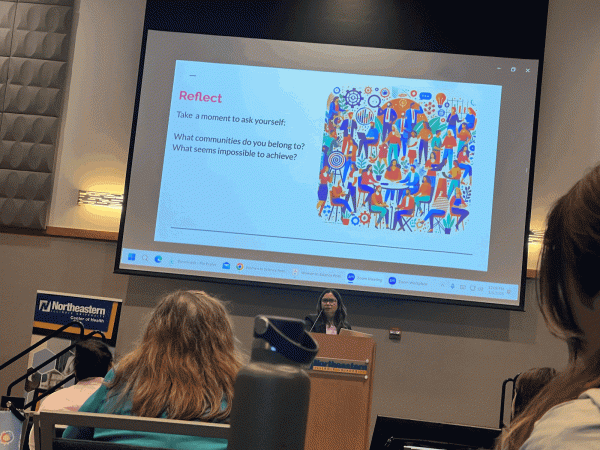
In a field long dominated by men, one program is working to change the face of computer science—literally. Technolochicas is a mentorship program that works to empower young Latina women to pursue STEM fields. The program pairs Latina college students with middle school and high school students in after-school coding clubs. The near-peer mentors not only share technical expertise, but they also serve as role models, and it demonstrates that Latinas, too, can thrive in computer science. “Latinas are severely underrepresented in computer science,” Landi said. “There aren’t even a lot of women in CS, much less women who are Latinas. And that’s a huge part of why I volunteered, because I want to be able to support Latinas like myself.” Technolochicas’ hands-on learning is especially valuable because most Latina students lack exposure to computer science early on in their communities.
Mentors like Landi and Carrillo not only gain teaching experience but also develop a tight network of Latina STEM professionals. They are awarded a stipend, a letter of recommendation and a connection to a community of like-minded women upon completion of the program. “As a mentor myself, I have the satisfaction of being able to help the community, especially women in coding projects, and knowing the fact that I’m contributing to getting more women in STEM,” Landi said. Programs like Technolochicas are vital to computer science pipeline diversity and to empowering the next generation of Latina innovators. By investing in these young women today, the program hopes to alter the industry’s face for years to come.
“We do have a Bachelor’s in Computer Science, and that does have a computer science general track, computer and network security, and data science,” Perera said. The computer science department also offers specialized bachelor’s degrees in information technology and cybersecurity to meet growing industry demands. And there is a plan for a future bachelor’s in artificial intelligence.
Perera highlighted the importance of exposing students to the range of career possibilities available with a computer science degree, beyond software engineering. “If you Google it, what do some computer scientists do? Software engineer. Wonderful. But if you don’t want to be a software engineer, you can do plenty of things,” Perera said. “The department goes out of its way to connect students with real-world experience, whether internships, research, or even field trips to tech giants like Google. These experiences not only improve students’ skill, but their confidence in pursuing computer science too.”
“I would suggest that you attempt [your] first year, mess around in your second year, connect in [your] third year and then focus in [your] last year,” Perera advised.
The last session of the conference was the panel that consisted of successful women holding various computer science and technology roles, including academia, data science, cybersecurity and sales. The panel members included Jean Czerlinski Ore, senior software engineer at Google; Cristina Haidau, computer science instructor at NEIU; Jolivette Garcia, cyber defense manager at Rotary Club International; Morgan Chesnicka, senior partner development manager at Microsoft; Meem Ahsan, senior director of data science at ADP; Mara Ulloa, candidate & U.S. National Science Foundation GRFP Fellow at Northwestern University and Stephanie Webb, data scientist & analytics manager of data services at Union Tank Car Company. The seven panelists candidly talked about how they embarked on non-conventional paths to achieve where they are now. A few of the women never dreamed of majoring in computer science, but they came to love it through classes, internships and mentors. Some of them mentioned being forced to struggle with self-doubt and challenges as women in historically male-dominated fields.
One of the panelists recalled being put under extra pressure when she revealed that she was pregnant and taking maternity leave as a female technology executive. She was asked to create an extensive transition plan—something her male colleagues were not required to do.
Another panelist, Chesnicka, discussed being fired from her initial career position and how it made her doubt herself. But she managed to recover by finding a more nurturing work environment that drew upon her strengths. The women pointed out the importance of building a support network, integrating work and life and seeing their careers as unique journeys rather than linear. They urged the audience–particularly girls and women–to keep going despite failures and to utilize failures as chances for development. Overall, the seven panelists offered inspiration and real-world guidance for students seeking careers in computer science and technology.
The 8th Annual WIS conference at NEIU was a great success because it celebrated women’s history month, innovation, diversity and collaboration. Attendees received the opportunity to experience cutting-edge research, experiential learning and inspiration from trailblazing professionals in computer science and mathematics.




